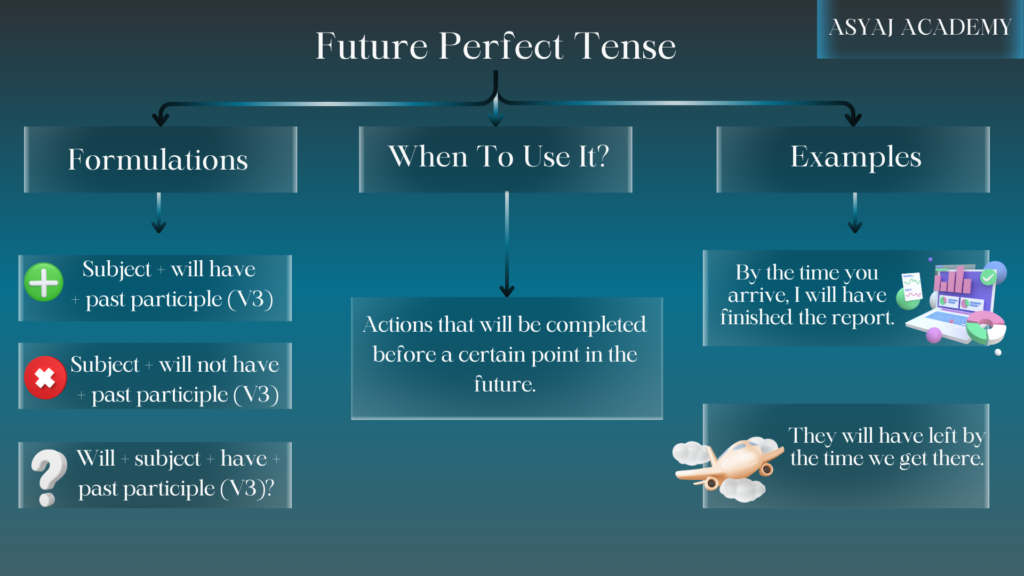Future Perfect Tense
The Future Perfect Tense is used to describe actions that will be completed before a specific point in the future. It helps to show the completion of an action by a certain time. Let’s explore its uses, form, and common time expressions.
Uses of the Future Perfect Tense
Completed Actions Before a Future Point:
To describe an action that will be finished before another future event or time.
Example: “She will have finished her homework by 8 PM.”
Forming the Future Perfect Tense
The Future Perfect Tense is formed using “will have” followed by the past participle of the main verb.
Structure:
Affirmative: Subject + will have + past participle
- Example: “They will have visited the museum.”
Negative: Subject + will not have + past participle
- Example: “She will not have completed her assignment.“
Question: Will + subject + have + past participle?
- Example: “Will he have finished his dinner?”
Common Time Expressions
The Future Perfect Tense often uses specific time expressions to indicate the point in the future by which the action will be completed:
1. By:
- Used to indicate a deadline or specific point in the future.
- Example: “She will have finished her project by Friday.”
2. By the time:
- Used to indicate a specific point in the future by which an action will be completed.
- Example: “By the time you arrive, I will have left.”
3. In:
- Used to indicate the amount of time before something happens.
- Example: “They will have graduated in two years.”
4. Before:
- Used to indicate that one action will be completed before another future action.
- Example: “She will have left before you get there.”
Examples in Context
To help you understand how to use the Future Perfect Tense, let’s look at these examples:
By: “I will have completed my assignment by tomorrow.”
This indicates that the assignment will be finished before or at the time of tomorrow.
By the time: “By the time we arrive, the meeting will have started.”
- This shows that the meeting will start before we arrive.
In: “They will have finished the project in three weeks.”
This means the project will be completed three weeks from now.
Before: “She will have gone to bed before midnight.”
- This indicates that she will go to bed at some point before midnight.
The Future Perfect Tense is useful for showing that an action will be completed by a certain time in the future. It helps to provide a clear timeline and is especially important in planning and setting future expectations.
